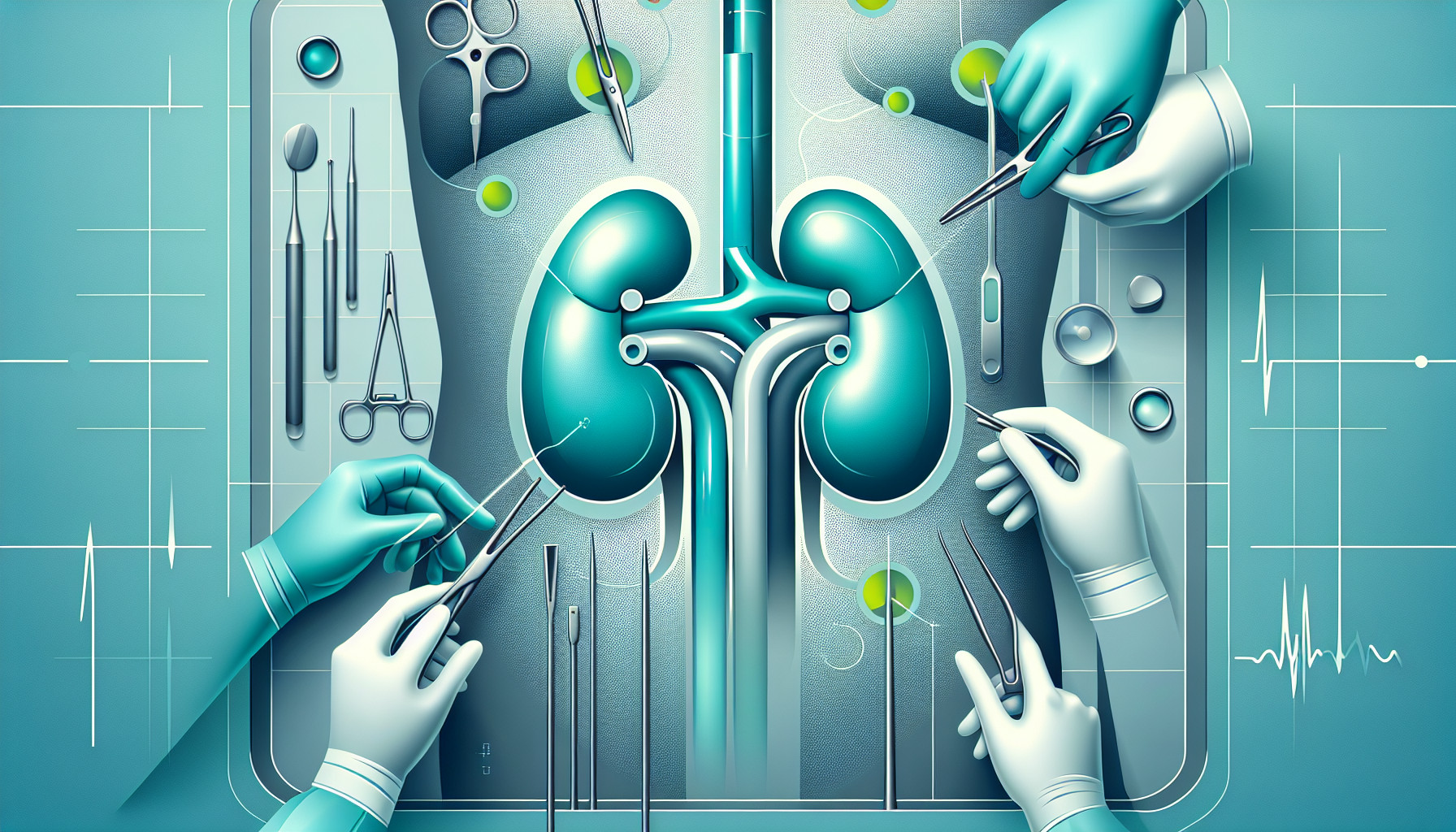Our Summary
This research paper aims to understand the relationship between the recurrence of diabetes after a kidney transplant and the potential benefits of also having a pancreas transplant. It’s suggested that having both a kidney and pancreas transplant at the same time could help maintain healthy blood sugar levels, which may protect the transplanted kidney from damage caused by diabetes. The study relies on recent large-scale data and long-term analysis to understand the recurrence of diabetes-related kidney issues. However, the paper concludes that while there seems to be a slight benefit to having a pancreas transplant, the improvements are minor and could take many years to become apparent. Therefore, the decision to undertake a pancreas transplant should not be made solely based on its potential to protect the kidney transplant from damage.
FAQs
- Does having a pancreas transplant at the same time as a kidney transplant aid in maintaining healthy blood sugar levels?
- Can a pancreas transplant protect a transplanted kidney from diabetes-related damage?
- What is the overall conclusion of the research paper regarding the benefits of a pancreas transplant in relation to a kidney transplant?
Doctor’s Tip
A doctor may tell a patient considering a kidney transplant that it is important to follow a strict medication regimen to prevent rejection of the new kidney. They may also advise the patient to maintain a healthy lifestyle, including eating a balanced diet, exercising regularly, and avoiding tobacco and excessive alcohol consumption to support the overall health of the transplanted organ. Regular check-ups and monitoring of kidney function and blood sugar levels are essential to ensure the success of the transplant and overall well-being of the patient.
Suitable For
Patients who are typically recommended for a kidney transplant include:
End-stage renal disease (ESRD) patients: Individuals with ESRD, where the kidneys have lost almost all their functioning, are often recommended for a kidney transplant as it offers a better quality of life and longer survival compared to dialysis.
Diabetic nephropathy patients: Patients with kidney failure due to diabetes, known as diabetic nephropathy, may be recommended for a kidney transplant to improve their overall health and potentially prevent further complications.
Autoimmune diseases: Patients with autoimmune diseases such as lupus nephritis or IgA nephropathy may benefit from a kidney transplant to potentially halt the progression of their disease.
Polycystic kidney disease (PKD) patients: Individuals with PKD, a genetic disorder characterized by the growth of numerous cysts in the kidneys, may be recommended for a kidney transplant to improve kidney function and quality of life.
Congenital kidney diseases: Patients born with congenital kidney diseases such as Alport syndrome or congenital nephrotic syndrome may require a kidney transplant to address their kidney dysfunction and improve their long-term health outcomes.
It is important to note that each patient’s case is unique, and the decision to undergo a kidney transplant is made after careful evaluation by a multidisciplinary team of healthcare professionals.
Timeline
Before Kidney Transplant:
- Diagnosis of kidney failure and recommendation for transplant as a treatment option.
- Evaluation by a transplant team to determine eligibility and suitability for a transplant.
- Placement on the national transplant waiting list.
- Waiting for a suitable donor match to become available.
- Pre-transplant testing and preparation for surgery.
After Kidney Transplant:
- Surgery to remove the damaged kidney and replace it with a healthy donor kidney.
- Recovery period in the hospital to monitor for any complications.
- Post-transplant medications to prevent rejection of the new kidney.
- Regular follow-up appointments with the transplant team to monitor kidney function and overall health.
- Adjustment to lifestyle changes, including dietary restrictions and medication management.
- Potential complications or rejection episodes that may require additional treatment.
- Long-term management of the transplanted kidney to ensure its continued function and health.
What to Ask Your Doctor
- What is the success rate of kidney transplants in general, and specifically in my case?
- How long is the waiting list for a kidney transplant, and what are the criteria for being placed on the list?
- What are the potential risks and complications associated with a kidney transplant?
- How will I need to prepare for the transplant surgery, and what is the recovery process like?
- Will I need to take immunosuppressant medications after the transplant, and what are the potential side effects of these medications?
- How often will I need to follow up with my transplant team after the surgery, and what kind of ongoing care will I require?
- Are there any lifestyle changes or dietary restrictions I will need to follow after the transplant?
- What are the chances of diabetes recurring after the kidney transplant, and how could a pancreas transplant potentially help prevent this?
- What are the potential benefits and risks of also having a pancreas transplant in addition to a kidney transplant?
- How long do I have to make a decision about whether or not to pursue a pancreas transplant alongside a kidney transplant?
Reference
Authors: Wiseman AC, Stites E, Kennealey P. Journal: Curr Opin Organ Transplant. 2018 Aug;23(4):448-453. doi: 10.1097/MOT.0000000000000547. PMID: 29878910
